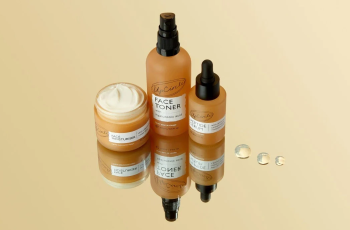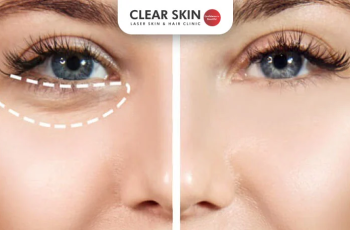
Green Tea in Skin Care
Green tea (Camellia Sinensis Leaf Extract) is a powerful antioxidant ingredient used to treat skin aging, acne, rosacea, eczema, psoriasis, and sensitive skin.
Its anti-inflammatory properties make it one of the best ingredients to treat skin inflammation in sensitive skin types and to treat hyperpigmentation.
I can be used in skincare regimens designed to lighten skin and in rosacea treatment creams.
Green tea has many benefits due to its antioxidant, anti-aging, anti-acne, anticarcinogenic, anti-inflammatory, skin lightening, and photoprotective properties.
It is recommended for all 16 Baumann Skin Types.
green tea in skin care
Camellia Sinensis Leaf Extract
Green tea is known by names but it is usually found on the product label as Camellia Sinensis Leaf Extract.
Benefits
Cancer protection
Green tea may help protect skin from skin cancer. Experiments conducted in the 1990s using mouse skin tumor bioassay systems revealed that when green tea polyphenols (GTPs)
were applied topically, they protected the skin from various factors that could induce or promote skin cancer, such as 3-methylcholanthrene, 7,12-dimethylbenz(a)anthracene (DMBA), 12-O-tetradecanoylphorbol-13-acetate (TPA), benzoyl peroxide, and 4-nitroquinoline N-oxide.
GTPs were found to have the ability to neutralize a wide range of harmful free radicals, including 1,1-diphenyl-2-picryl-hydrazyl (DPPH), hydroxyl radicals, and lipid-derived radicals.
EGCG also reduces the immunosuppression caused by UV exposure by limiting the production of interleukin-10 (IL-10) and increasing the production of interleukin-12 (IL-12), which are important cytokines involved in the immune response.
EGCG appears to enhance the production of enzymes that repair DNA damage caused by UV radiation.
does green tea help prevent cancer?
Aging Prevention
Green tea may help prevent skin aging by blocking the causes of skin aging such as inflammation and free radicals.
In mouse studies, EGCG was shown to downregulate the expression of AP-1 and NF-κB, both involved in cellular signaling, while inhibiting matrix metalloproteinases (MMPs), which can degrade collagen and lead to photodamage.
In a study involving hairless mice exposed to UVB radiation, drinking water supplemented with GTPs suppressed protein oxidation in the skin, both in vivo (in the living organism) and in vitro (in cultured human skin cells).
Oral administration of GTPs in hairless mice was also found to inhibit the expression of MMPs in the skin after UVB exposure, indicating potential anti-aging properties of GTPs.
Green Tea Comes from Plants
Green tea comes from an evergreen tree Camellia sinensis that is in the Theaceae family. It is a natural product that can also be organic if no pesticides are used when cultivating it.
Chemistry of Green Tea in Skin Care Products:
Safety Issues and Clean Ingredient Standards for Green Tea
Green tea and green tea extracts are categorized as “generally recognized as safe” (GRAS). It is a natural and clean ingredient. It may be organic if grown without pesticides.
Green tea is rated 1-2 by the EWG.
Allergy to Green Tea
Green tea can rarely cause a skin allergy.
It is often found on lists of allergenic skin care ingredients.
This is uncommon and I have never seen it but cases have been reported. The person who develops an allergy to green tea usually also has a black tea allergy.
Environmental Impact of Green Tea in Skin Care
Cultivating green tea does not harm the environment. The sustainability of tea plantations may be threatened by global climate change. (1)
considerations on the formulation of green tea products in skin care
Product Formulation Considerations
EGCG is the component of green tea that should be used in formulations because it has the most antioxidant activity. However, EGCG is also the most expensive form of green tea in cosmetics and is challenging to formulate because it is unstable.
It is water soluble and relatively easy to combine with other ingredients because it does not easily react with other ingredients and seems to facilitate or support their stability.
When a large amount of green tea is put in a skincare product, it may look turn brown. (In this case- brown is good because it means there is enough green tea in the product.)
Skin Care Routine Design Considerations
The hydrophilic nature of EGCG limits penetration into human skin. Green tea should be used with ingredients that increase skin penetration when possible such as hyaluronic acid and oleic acid.
When designing a skin care routine, care should be taken to design the order of steps in the routine to increase absorption of green tea.
Find the best skin care products with Green Tea here
Chemical components
Green tea is a polyphenol in the flavonoid category of flavanals known as catachins.
The four major polyphenolic catechins found in green tea include:
ECG [(-)EpiCatechin-3-O-Gallate]
GCG [(-)GalloCatechin-3-O-Gallate]
EGC [(-)EpiGalloCatechin]
EGCG [(-)EpiGalloCatechin-3-O-Gallate]
Green tea polyphenols (GTPs) are antioxidants and also affect Ras and activator protein (AP)-1, which are part of the mitogen-activated protein kinase (MAPK) pathway.
Green tea is good for all skin types. Let u help you build a skin care routine finding products that are right for you skin type. Have questions? Ask our AI bot that we call our skin care concierge.

